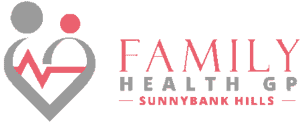Advice on holistic high blood pressure management
Most people with high blood pressure have it and don’t even know so we look at steps you can take to prevent, manage and treat it.
Doctors regularly monitor patients because most people with high blood pressure have no symptoms. They may feel completely fine which is why it’s important to have it checked regularly and there are processes in place to start lowering blood pressure.
What is high blood pressure?
The heart pumps blood around the body and when it starts squeezing into arteries the pressure is high. When the heart is relaxed the pressure is lower. If you have high blood pressure (also known as hypertension) it can affect the blood flow to your organs and over the years can develop into heart disease and cause problems with the kidneys, eyes and blood vessels. More than a third of Australians over 18 have high blood pressure.
How is high blood pressure diagnosed?
High blood pressure is a measure on a machine you would be familiar with at the doctor because they test it generally every visit. The machine or device gives a reading (systolic/diastolic) of pressure pushed into the arteries (systolic – normal is considered 120 mmHg) and within the arteries during heartbeats (diastolic – normal is considered 80 mmHg). If it’s over 140/90 mmHg, it’s considered high. Your doctor can explain what the numbers mean and will likely want to retest it throughout the day at home or monitor it with a device so they can work on a plan to start lowering blood pressure.
Lowering blood pressure
Having high blood pressure is caused by a number of factors including:
- Being overweight
- Smoking
- A diet high in salt & fat
- Family history
- Diabetes
- Alcohol consumption
- Not getting enough exercise
Depending on the severity of your high blood pressure, lowering blood pressure may be achievable through simple changes in diet such as cutting out salt and fat and eating more vegetable and cholesterol-lowering foods, reducing alcohol intake, quitting smoking, losing weight, doing regular physical activity, managing stress and looking after your mental health.
What if that isn’t enough?
For some people with high blood pressure, lifestyle changes will not be enough to lower it to a safe level and they will require medication. There are a number of different types of medication for lowering blood pressure. Your doctor can discuss the options with you but common medications to treat high blood pressure include:
- Beta blockers: stop the effects of adrenaline on the heart and make it work more efficiently by forcing it to beat slower.
- ACE inhibitors: stop blood vessels from narrowing and ease the pressure on the heart having to pump blood around the body
- Diuretics: help the kidneys remove sodium and water from the body. By removing fluid from your blood vessels, it lowers the pressure of the blood.
Family Health GP Sunnybank Hills is proud to offer friendly and professional medical services to the local community. Call us today on (07) 3272 2396 to make an appointment and have your blood pressure checked.
